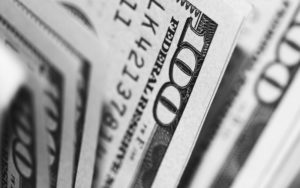COVID Frauds of the Week: DOJ Continues to Crack Down on PPP Fraudsters

As of this week, the Small Business Administration has disbursed over $700 billion in Paycheck Protection Program (PPP) loans to small businesses and non-profits. There are over $100 billion in remaining appropriations, with additional appropriations likely to follow thereafter. With numbers like these, the program has become a magnet for fraudsters seeking to profit from the pandemic. The DOJ has been actively going after PPP fraud; here’s a summary of several schemes the department went after this week:
- Mukund Mohan of Clyde Hill, Washington plead guilty to wire fraud and money laundering for submitting at least eight fraudulent PPP loan applications, for six different companies, to the tune of $5.5 million. Mohan submitted fake and altered tax filings and incorporation documents to support his phony loan applications. Mohan, a tech executive, could face up to 20 years in prison.
- Leonel Rivero of Miami, Florida, was charged with wire fraud for allegedly submitting over 100 fraudulent PPP loan applications seeking $2.3 million for himself and his accomplices. Rivero, who owned a tax-preparation business, allegedly falsified income and expense information in the applications and submitted fake tax forms.
- John Jhong of Sparta, New Jersey was charged with bank fraud, money laundering and false representation of a Social Security number after allegedly submitting 10 fraudulent PPP loan applications. The applications allegedly included fake tax documents which were never filed with the IRS and referenced fake business partners with personal identifying information that belonged to people who had passed away more than ten years prior. Jhong was able to obtain $1.9 million in PPP funds.
- Olivia Ware, former mayoral candidate for Conyers, Georgia, was arraigned on bank fraud and money laundering charges based on allegations that she stole over $323,000 from the PPP. Ware allegedly submitted PPP loan applications claiming she had 54 employees who were paid hundreds of thousands of dollars in salary, even though the company did not pay wages to any employees. Ware allegedly used the PPP funds to pay down her mortgage and purchase a swimming pool, furniture, and other home improvement items.
These scams are not victimless crimes. As HSI Special Agent Katrina W. Berger explains:
Every time a fraudster steals money from the PPP fund, another legitimate business is unable to get those funds to help real employees with real families.
Whistleblowers play a critical role in stemming the tide of widespread PPP fraud. If you have information about fraud related to COVID-19, or any other fraud on government programs, contact us.
READ MORE:
- COVID-19 Fraud
- Financial & Investment Fraud
- The Paycheck Protection Program is a Big Solution to a Big Problem, but it Needs Big Oversight
- Our other posts on COVID-19 Frauds of the Week
Tagged in: Catch of the Week, COVID-19, Financial and Investment Fraud, Financial Institution Fraud, Government Programs Fraud, Money Laundering,